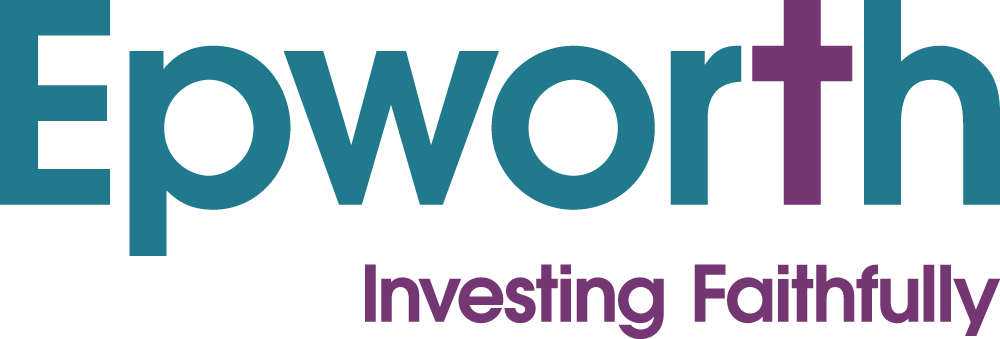Christian Ethics
Through improving corporate behaviour, we believe that
companies have the potential to help improve the lives of people and the state of our planet.
Epworth recognises the increased complexities and scrutiny surrounding ethical investment and believes our Christian approach ensures we are both pragmatic and transparent.

Epworth has strengthened its grounding through the development of ethical pillars. These pillars underpin policies, keep the firm rooted in its Christian heritage, and allow Epworth to better respond to existing and emerging issues.

The investment space is full of ethical issues that Epworth could engage on. Priorities for engagement with investee companies are established using client consultation and portfolio review, resulting in a priority matrix.

Epworth recognises that no investee company is perfect. The Levels of Tolerance outlines our limits for exposure to issues we see as incompatible with the Christian faith.

Epworth views voting as an exercise in good stewardship on behalf of our clients. We vote together with other like-minded investors to maximise our voice potential.
STEWARDSHIP CODE
We are devoted to maintaining an ethical strategy that our clients can be proud of; one that makes your investment work
hard to affect real change across industry and society.
Read how we have put our ethical approach into practice.


Policies
Epworth’s ethical policies enable the identification of companies which are consistent with our ethical investment approach. Epworth operates proprietary ethical inclusion lists derived from these policies and advice on securities in global markets. When analysing a potential investment, we are concerned with what a company does and how significant and serious any exposure is to issues of ethical concern. We also examine how a company is run, and its interaction with wider society and the environment.
Policy statements
Click on a title to access the relevant policy statements
- Alcohol related companies
- Banking
- Caste discrimination
- Children’s issues
- Climate Change
- Climate Change – Implications for Different Fuels
- Contractors supplying military and security services
- Corporate governance
- Electricity generation
- Epworth Screening, Exclusions and Engagement
- Extractives
- Farm animal welfare
- Financial intermediaries
- Fixed Income
- Gambling
- Health and Nutrition within the Food and Beverages Industry
- Human rights and conflict
- Media
- Military exposed companies
- Mining companies and other extractive industries
- Pooled Funds
- Pornography
- Prisons
- Tax Justice
- Tobacco
- Tolerances
Ethics Case Studies
Click below to read our case studies.
ITV Interview and Feature, January – February 2024
Andrew Harper’s recent interview with ITV’s Business and Economics editor Joel Hills in
collaboration with the Bureau of Investigative Journalism was featured online and
nationwide as part of the primary news topic on ITV news at 10 on the 19th of January 2024.
Their work revealed that HSBC, despite climate pledges to the contrary, are continuing to support and finance expansionist oil and gas projects. One of the ways the bank avoided accountability was to utilize methods of raising capital that were outside their loan books, such as facilitating share sales.
In February 2024, the Financial Times also reached out to Epworth for background on a development to the HSBC story. It was confirmed, through the FT article titled ‘HSBC caves to investor pressure on capital markets emissions’, that the bank will increase its transparency and include off-balance sheet emissions in its upcoming annual report. We
believe this is a direct response to the concerns raised by ITV, the Bureau of Investigative Journalism, and Epworth.
HSBC, Cardinal Nichols
Epworth facilitated a high-level dialogue with Cardinal Vincent Nichols and two senior advisors for HSBC’s Group Chair. Equipped with the updated Epworth policy on the Banking sector, they were able to discuss the bank’s position on infringements to democratic rights in Hong Kong, its response to banking in Russia following the illegal invasion of Ukraine, and its commitment to no longer provide project finance for the development of new oil and gas fields.
HSBC and the Net Zero Banking Alliance
In November 2021, the Bureau of Investigative Journalism broke a story regarding HSBC, alleging that it was working to water down action on climate change through the Net-Zero Banking Alliance to which it is a signatory. Epworth featured in this article, which was nominated for ESG story of the year in 2021.
Barclays Shareholder Resolution/ Co-filing, 2023-2024
Epworth, alongside other institutional investors co-ordinated by ShareAction, co-filed a shareholder resolution against Barclays in December 2023. The resolution was put forward due to the bank being a clear laggard in its industry as a major financier of fossil fuel companies, to specifically those who are still giving the green light to new and expansive projects.
Given knowledge of the construction of their new climate policy, we identified this as an excellent opportunity to influence effective, long-lasting change over the course of its development. The asks of the resolution were formulated with the intention to strengthen the bank’s climate measures, and bring more resolve to its lending limits whilst ensuring the bank established measurable targets in order to provide scope for robust accountability.
Now publicly available, Barclays’ new climate commitments aided by our engagement include:
- To end all asset financing for new oil and gas projects and associated transportation infrastructure on a project level.
- To end direct financing to energy groups for expansionist projects (expansionist defined as any upstream oil and gas projects with a final investment decision after 31st of December 2021)
- Barclays will no longer provide financing to new clients where more than 10% of the groups’ capital expenditure is dedicated to expansion.
- To conduct enhanced reviews of all current clients with greater than 10% capital expenditure allocated to new oil and gas projects through the Barclays’ tailored client
transition review forum. - From 2025, all energy clients will be expected to have in place a transition plan or decarbonisation strategy policed by the client transition review forum.
- Further restrictions of financing will be implemented for clients from 2026 unless they have carbon emissions and methane reduction targets in line with the oil and gas climate initiative and methane partnership, as well as an end to flaring, all by 2030.
Epworth invests in gold “The gold, the bad and the ugly”
Epworth has long grappled with the ethical dilemmas associated with the precious metals industry. The extraction of these metals entails substantial environmental ramifications, encompassing significant carbon emissions during the mining and refining processes, along with the local ecological degradation resulting from extensive land clearing in pursuit of minute metal quantities. Beyond environmental concerns, the human toll is equally disconcerting, as numerous mines globally resort to exploitative practices such as child or forced labor under perilous conditions. Furthermore, the extraction market targeting precious metals from discarded circuit boards and other waste materials is fraught with similar ethical challenges.
For these reasons, Epworth does not invest in the shares of mining companies focused on precious metals, and has been reluctant to invest in other forms of exposure to these commodities to date. However, there is no doubt that precious metals, particularly gold, can provide compelling investment properties as part of a diversified portfolio. Although gold pays no dividend, its track record shows it offers little correlation to other major assets, particularly in times of financial or geopolitical shocks, making it an attractive diversifier. Following an extensive research exercise, Epworth recently approved for investment a product providing direct exposure to gold reserves held at the UK’s Royal Mint (RM).
RM is one of the oldest companies in the world, manufacturing UK coins as well as currency for over 30 other nation states. It supports a supply chain of over 800 companies, and is a key member of both the World Gold Council and the London Bullion Market Association. The waste offcuts of gold taken from its coin manufacturing processes are recycled into gold bars, meaning they have just 10% of the carbon footprint of bars manufactured from virgin mined materials.
The key benefit to Epworth of partnering with RM through this investment is to leverage RM‘s status and reputation in the market, to lead the industry on a journey of sustainable initiatives for the precious metals supply chain. It recently became the first sovereign mint to achieve Science Based Target initiative (SBTi) recognition for net zero targets, aided by recent investment that now allows it to renewably self-generate around 70% of its power needs at its manufacturing facility in South Wales.
Epworth’s Multi Asset Fund manager Matthew Jones recently visited the RM’s manufacturing facility to see the recycled gold process first hand, as well as meet with RM’s leadership on its approach to supply chain audit and engagement. RM has conducted an extensive engagement process this year to push for alignment with its new sustainable sourcing policy, and has successfully got more than 75% of its suppliers signed up so far. Epworth will seek to maintain a dialogue with the RM over the coming years to leverage its influence in the broader precious metals industry, and push for positive environmental and social change.
Collaborations and commitments
We work with a large number of organisations and networks in meeting our clients’ objectives, click below to read about who we work with and the commitments we make.
Collaborations
We work with a large number of organisations and networks in meeting our clients’ objectives. These include:
- Access to Medicine Index
- Access to Nutrition Index
- Business Benchmark on Farm Animal Welfare
- Carbon Disclosure Project
- Church Investors Group
- Ecumenical Council for Corporate Responsibility
- Extractive Industries Transparency Initiative
- FAIRR
- Institutional Investors Group on Climate Change
- Institutional Shareholder Services (ISS)
- Principles for Responsible Investment
- Trucost
- UK Sustainable Investment and Finance Association
Commitments
These include:
- FRC Stewardship Code
- Fair Tax Mark
- Montreal Pledge Disclosure
- Living Wage Foundation





